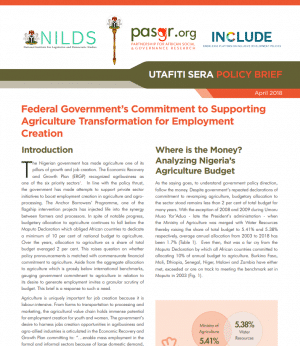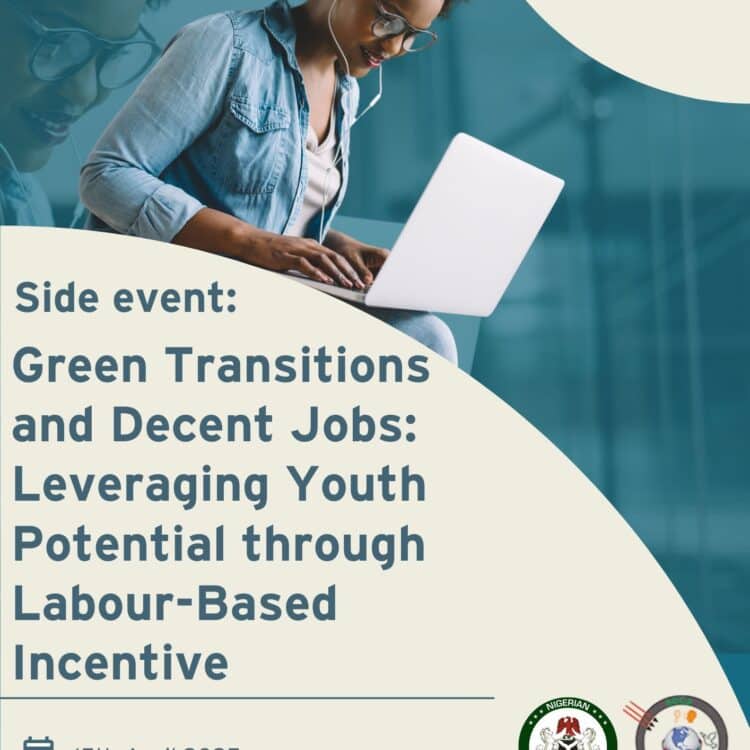
The African Policy Dialogues on employment creation in agriculture and agro-processing in Nigeria has published a Policy Brief as a response to the need to take a closer look at the government’s budget to generate employment in the agriculture sector. This policy brief highlights the question ‘How well has government intention been matched with financial commitment through budget?’. Researchers, farmers, industrialists, civil society organization and cooperative groups that make up the Utafiti Sera came up with the following suggestions for policy.
Policy Recommendations
- There is need for greater political will to significantly increase budget allocation to agriculture and agro-processing in order to turn aspirations of boosting job creation through agribusiness and agro-allied industries as contained in policy documents into reality.
- Enhance the transparency and popular participation of relevant stakeholders in the budgetary process from preparation through approval to tracking and monitoring of budget implementation.
- Support capacity building for farmers, processors and other relevant stakeholders in agriculture and agro-processing value chains.
Read more about the suggestions made for policy in Nigeria to get proclaimed prioritization of agriculture and budget allocations to agriculture in line with one another in this policy brief.




